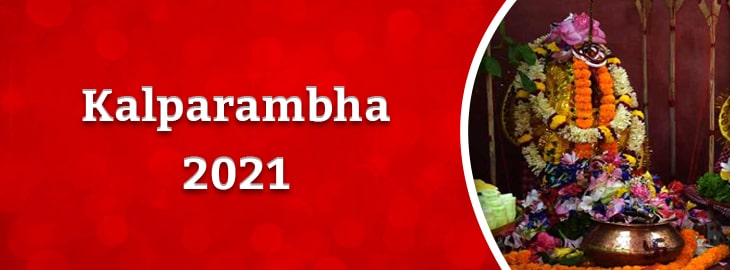On the 6th day of Durgotsav, a ritual of Bilva Nimantran is performing in the evening. However, sometimes the 6th day Muhurat gets over before the evening time. In that case, if the 5th day coincides with the evening of the 6th day, then Bilva Poojan Panchami should be performing in the evening time itself.
Kalparambha
The ritual of Kalparambha is performing early in the morning. In the course of this time, an earthen pot is recognized which is filled with water and offered to Goddess Durga and it is called as Ghatasthapana. After the Ghatasthapana, Goddess Durga is worshiped and reverenced according to the desired ritual on the days of Maha Saptami, Maha Ashtami and Maha Navami.
Bodhan
Bodhan which is also known by the name of Akaal Bodhan is performing in the evening time. Bodhan is referred to as waking up someone from sleep. On this time, Goddess Durga is made to wake up from her sleep. It is said that in the Dakshinayan Kaal all the deities are asleep. According to the Hindu Puranas, the Durga Pooja festival falls in the mid of the year in the Dakshinayan Kaal, that is why through Bodhan, Goddess Durga is made to wake up. It is assumed that Lord Shri Ram was the first one who through his worship for Goddess Durga made her to wake up and then he killed Ravan. As, Goddess Durga is made to wake up punctually that is why it is called as Akaal Bodhan. In the tradition of Bodhan, a Kalash or any pot filled with water is placed under the Bilva tree. Bilva Patra has a lot of significance in the worship of Lord Shiva. In the activity of Bodhan, prayers are offered to Goddess Durga to wake her up.
After Bodhan, the ritual of Adhivas and invitation comes into play. Worshipping Goddess is also referred to as invoking the Goddess. When Goddess Durga is established symbolically after the Bilva Nimantran, then it is called as invoking the Goddess which is also known as Adhivas.



